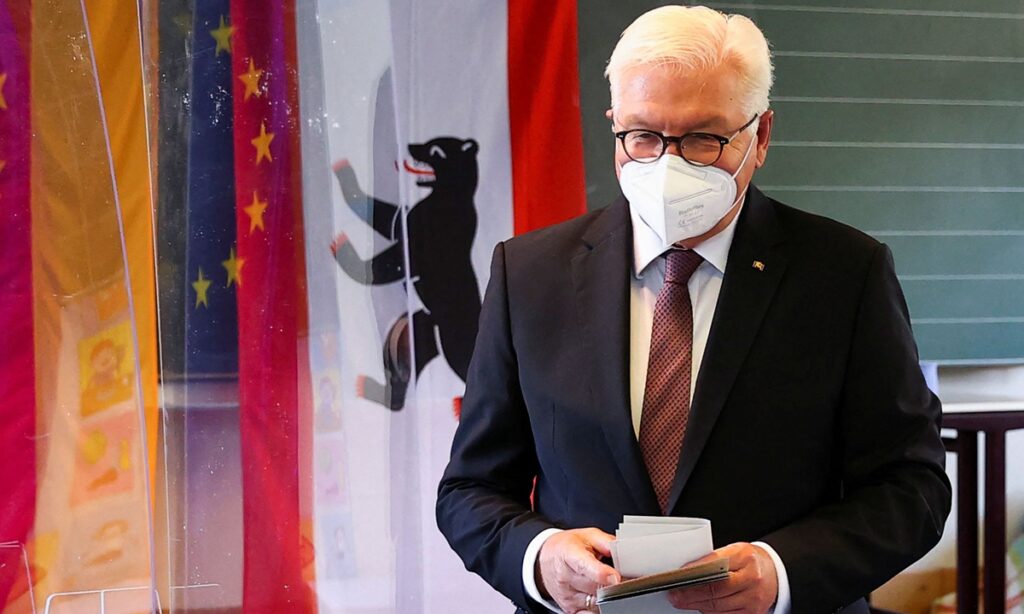Frank-Walter Steinmeier was elected to a second term as Germany’s president on Sunday as a special assembly voted the veteran politician, seen as a symbol of consensus and continuity, back in to the prominent yet largely ceremonial post.
Steinmeier’s election by secret ballot by a majority of the assembly for another five years was widely expected, amid broad support from most of Germany’s major parties during a time of global turmoil and following a recent change of government.
Chancellor Olaf Scholz, noting the COVID-19 pandemic and the Ukraine crisis, called Steinmeier the “right president at exactly the right time.”
A top government aide during Gerhard Schroeder’s chancellorship and a foreign minister under Angela Merkel, Steinmeier is the 12th person – all men – to hold the office in the post-war era.
During his first presidential term, he earned a reputation as a moral compass for the nation, urging people to get coronavirus vaccinations and speaking out against extremism and violence.
In 2020, at an event Jerusalem’s Yad Vashem memorial center to mark the 75th anniversary of the liberation of the Auschwitz concentration camp, Steinmeier described himself as “laden with the heavy, historical burden of guilt” and warned that the “spirits of evil are emerging in a new guise.”
“I wish I could say that we Germans have learnt from history once and for all,” he said.
Barred from active politics as president, Steinmeier grew to prominence as a Social Democrat, the party of Schroeder and Scholz. As foreign minister in 2016, he drew criticism when he labelled NATO’s decision to stage military maneuvers in eastern Europe as “saber-rattling.”
German presidents are elected by special assemblies comprising lawmakers and hundreds of other prominent citizens.
This time the body included Merkel, making her first public appearance since leaving government, the co-founder and chief medical officer of BioNTech, Ozlem Tureci, and moustachioed drag queen Gloria Viagra.
German President Frank-Walter Steinmeier votes at a polling station in Berlin during general elections on Sunday. Polls have already opened in Germany as voters choose a new parliament. The outcome will determine who gets to replace Angela Merkel after almost 16 years as chancellor. Photo: VCG




